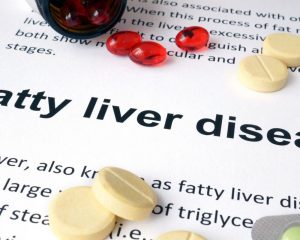Are you considering becoming a donor or recipient of liver transplant surgery? If so then it’s important to know liver transplant criteria for both parties. Fun Fact: 750,000+ liver transplants have been done in the USA during the past three decades. There are various guidelines that must be followed in terms of issues like the liver’s condition and other factors. For example, the liver receiver isn’t allowed to be a heavy alcohol drinker and the donor can’t have serious liver diseases. This helps to make the process as smooth as possible. It’s a major surgery so it’s critical to make the process as smooth as possible for both parties.
Sometimes these guidelines aren’t completely clear. For example, it’s illegal to sell organs and for someone to force you to donate one. In many cases, people are unaware of these rules. It’s important to know all the requirements so you know what you can and can’t do whether you’re donating/receiving a live organ. The entire process is quite complex, including an evaluation by a committee that must approve your case for a liver implant. If you’re approved you then get placed on a waiting list and your prioritization is based on MELD score.
Liver Transplant Criteria
Donor
You must have the proper profile in order to become a liver donor. Different nations and transplant organizations have various rules about who can or cannot become a donor. It’s important to note that each candidate donor is the only one who can decide whether or not they’ll become a donor. In particular, nobody can force you to make that decision.
There are also legal documents involved including a consent form. In addition, if you have second thoughts you can back out of the process at any time. The process involves making a decision using your own free will. So you can also decide whether or not it’s something you don’t want to do anyway.
Who should you donate your organ to? A good match is a blood relative. Relatives tend to be a good match for organ donors so it’s a good option. However, there are also transplant centers that allow people to donate partial livers to people they’re not related to. These people have been added to a waiting list for organ transplants.
In terms of age in most cases, it’s recommended that donors be within the range of 18 to 60 years old. However, the particular range can vary greatly. It’s critical that you’re 18+ years old since children/teens are considered too young to make the legal decision about organ donations.
Transplant centers also tend to prefer younger donors. That’s due to the fact their livers usually have fewer health complications versus older ones.
Another key issue is blood type. You’re not required to have an exact match with the liver recipient. However, it’s important that the two blood types are compatible.
You can’t be a donor if you have various conditions/diseases including:
- Type-2 Diabetes
- Hepatitis C
- Alcohol/Drug user
- Cancer
- High blood pressure (very high)
- Immune system disorders
- HIV/AIDS
- Heart/lung disease
- Gastrointestinal (GI) disease
- Liver disease
Recipients
You can receive a donated liver if you have “end-stage” liver disease. This is allowed when medical treatments aren’t working. It’s important to note that different donation centers have different criteria. So even if one center has rejected your application for a liver transplant another one might give you a thumbs-up.
Here are some of the common substances, conditions, and diseases you should be free of:
- Psychiatric conditions
- Alcohol (last 6+ months)
- Infections
- Various conditions/diseases
- Substance abuse
- Lacking enough health insurance
- Cancer (outside liver)
- Lacking social support
Another important requirement is being willed/able to make certain lifestyle tweaks to support the partial/whole liver you receive.
If you’re in the early stages of liver disease then you might qualify to receive a partial healthy liver. This is from a “living donor.” Many of the conditions are similar for whole liver transplants. Make sure to research the criteria for a particular transplant center.
It’s also important to know the basic process of receiving a donated liver. You must be in the “end-stage” of liver disease including cirrhosis. In these cases, the only cure is to swap in another liver. A special committee evaluates your situation to determine whether or not you qualify for a liver donation.
An important factor is whether you have the financial resources to cover the cost of a liver transplant. The average list price is $300,000+ although the price tag can be over $500,000 if you don’t have health insurance. The costs are much lower if you have health insurance and an average of about $100,000.
If you’re approved to be a liver transplant candidate you’re put on a waiting list. Your prioritization will be based on something called a MELD score. This is based mainly on how severe your condition is. Even if you have cirrhosis you might be lower on the waiting list based on your liver condition.























